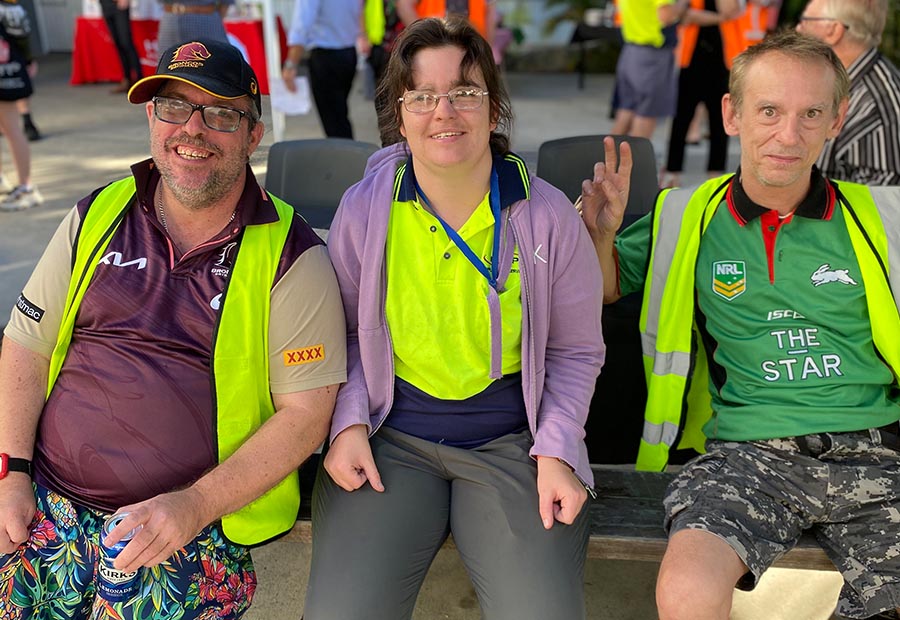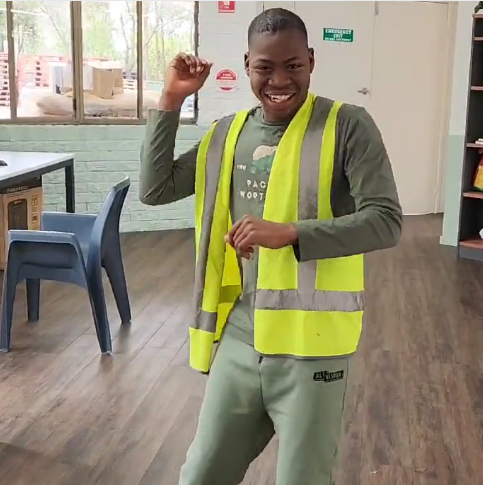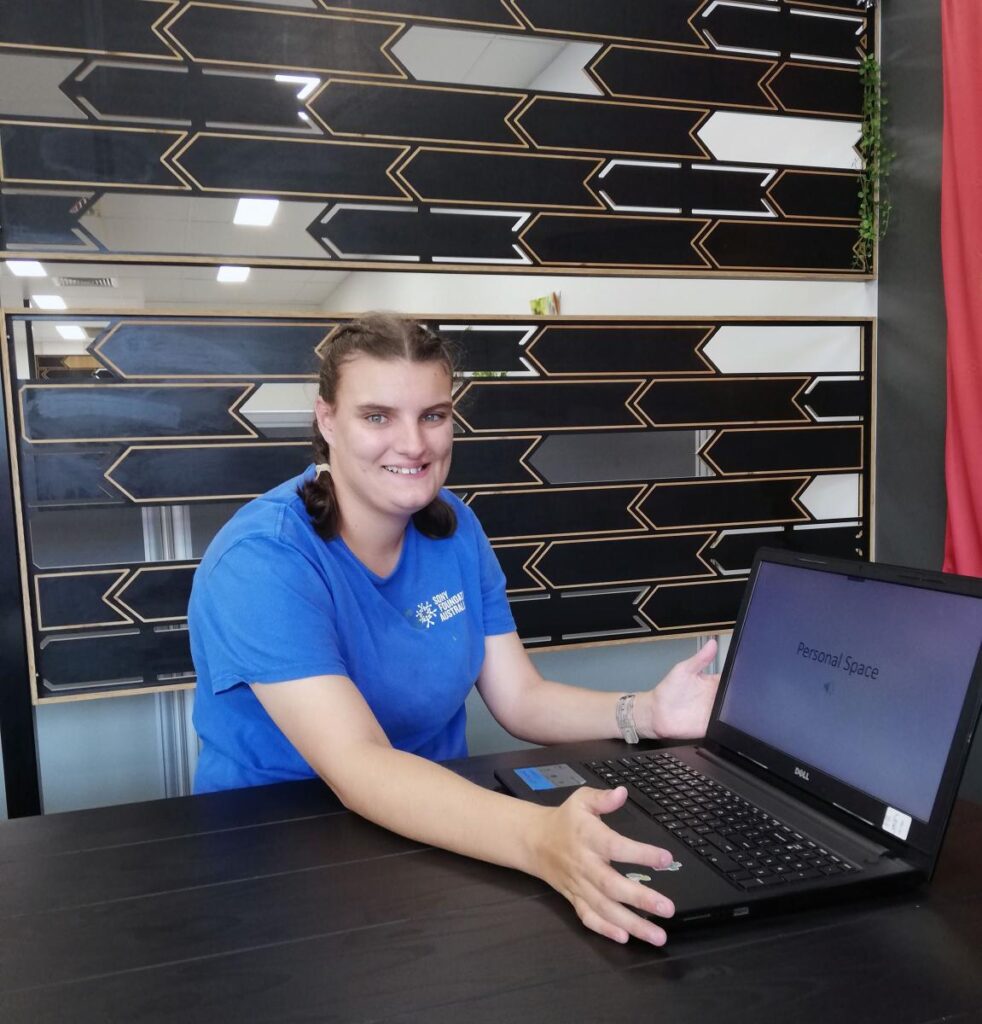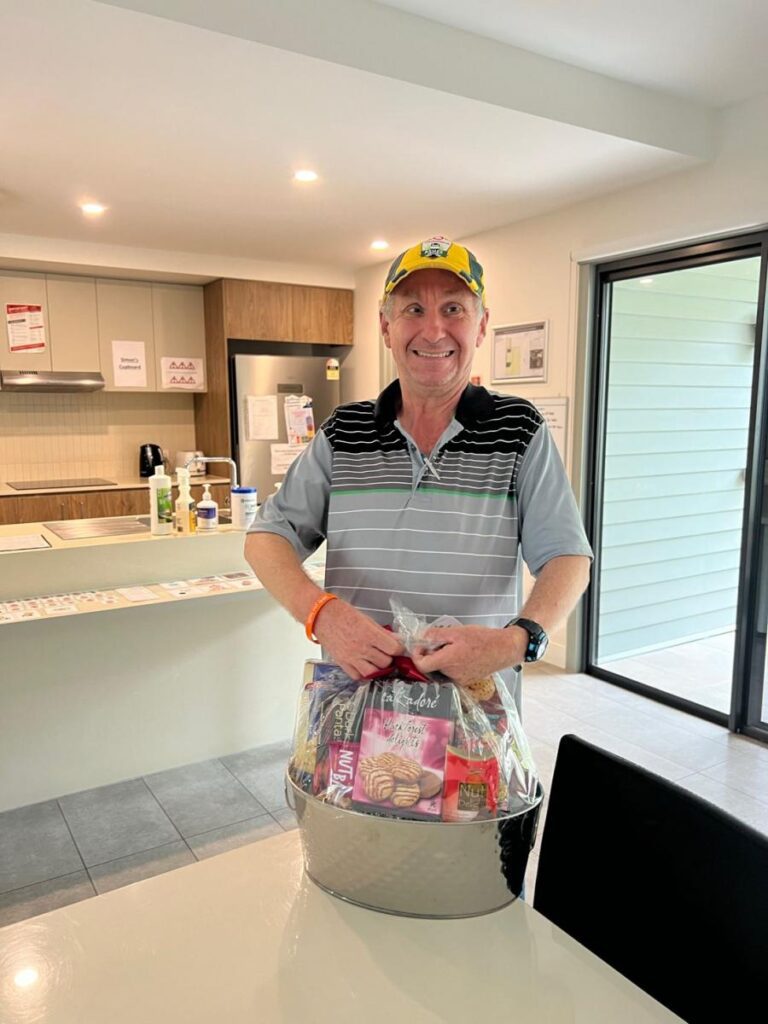News & Stories
Community & Wellbeing
Learn & Grow
Article
Featured
Resource
14 April 2023
Develop social skills for work and life at Help

Are you looking to level up your social skills and become a social butterfly? Well, look no further! We can help you become a social pro in no time!
Why are social skills so important anyway?
Developing social skills is an important part of life not just for people with disability, but for people of all ages, abilities, and backgrounds.
Social skills can help you:
- Build relationships – social skills are essential for building healthy and positive relationships – this includes friendships, relationships at work, and romantic relationships. These skills can help you communicate more effectively, express yourself more clearly, and build empathy and understanding with others.
- Enhance your quality of life – the ability to fit in with other people can give you a sense of belonging and improve your quality of life. Good social skills can help you make new friends, join in social activities, participate in sports, and be an active member of your community.
- Improve your health – Being sociable and connecting with others can reduce feelings of loneliness, depression, and anxiety.
- Advance your career – having good social skills can help you succeed at work. Effective communication skills, teamwork, and conflict resolution skills are highly valued by employers, and employees who have these skills are often promoted, or quickly able to move into better new roles.
- Become more independent – by developing your social skills and being sociable you will be able to gain more independence and become more self-sufficient. Strong social skills can give you the confidence to advocate for yourself, make decisions and solve problems independently.
- Grow as a person – the stronger your social skills are, the more confident, resilient, and adaptable you’ll become.
Ways to develop your social skills
There are many things you can do to help develop your social skills. Here are some suggestions:
- Join social groups – groups that focus on hobbies, interests or activities are great ways for people with disability to learn to become more sociable.
- Attend events – events are a good way to meet new people, and there are events for every occasion and interest whether you’re into footy, fitness, theatre, or cooking (and a lot of them are free to attend).
- Learn something new – you can attend classes or workshops to learn new skills – and mix with people who are interested in learning the same things you are.
- Become a volunteer – volunteering at local organisations or charities can be a great way to meet new people, get out of your comfort zone, and doing something to help others.
- Join a sports team – playing sports is not only good for your physical fitness – it also allows you to improve your social skills, have fun, and meet new people.
Get sociable with Help’s support services and programs
Help has several programs and services that can encourage you to develop your social skills and build stronger connections.
HELP Hubs & Community Supports
No matter what your interests are, our Hubs have something to help you become more sociable. Our Help Hubs provides a safe and welcoming space where people with disability of all ages can learn, grow, and be themselves.
HELP also offers Community Supports for people with disability. These services give those that may be a little shy the opportunity to meet new people, make friends, and be more independent.
Employment Services
Help’s NDIS employment services provide support for people with disability to gain employment and improve their social skills. These services help you:
- build relationships
- gain confidence
- learn how to communicate at work and out in the community
- develop practical and industry-relevant skills.
Our employment services offer support for people of different ages and with different needs:
- School Leaver Employment Supports (SLES) – SLES helps you develop the social skills you need to transition from school to work
- Supported Employment (SEM) – you can work in a supported environment to gain important work and social skills.

Sekou joined Help School Leaver Employment Supports 6 months ago and has been working hard to develop his social skills. As Sekou is non-verbal, he relies on a communication device to speak with those around him. To personalise the device and get more familiar with how to use it in social settings, Sekou has been working with his Coach Lachie in collaboration with his Speech Therapist.
Lachie has encouraged Sekou to use the device in all their SLES activities which have not only helped Sekou become more confident, but have also increased his ability to join in conversations and communicate how he’s feeling.
Kasey is a super energetic and positive person who loves to make new friends and have impromptu dance parties! Over the past two months, Kasey has been working hard on her social skills, specifically, learning how to read social cues to understand more about people’s personal boundaries.
Kasey creates her own stories using pictures, sounds, and words to help visualise different social scenarios and practice appropriate behaviors. This has helped her improve her social awareness when out and about in the community, at work, and meeting new people.

Supported Independent Living

Help’s Supported Independent Living service (SILS), is designed to empower you so you can get the most out of life.
Before moving into a Help house Stuart struggled to attend social events and found it tricky to connect with others due to his hearing impairment. Now that he’s joined our Help community, and gotten to know his housemate and neighbours, he’s found a new lease on life.
In just a few short months Stuart has already made some lifelong friends. He now accesses our Community Supports to do things like go to the beach with friends, and attends Games Night in our After-Hours Program. Living independently has truly been a life-changing experience for Stuart and opened a whole new world full of possibilities.
Contact HELP today, to find out how we can help you become the best version of you!
Give us a call and one of our friendly team members will be in touch shortly
We’re here to help!
Our Locations
With over 40 locations across Southeast Queensland, we’re nearby for when you need us.
Find your nearest location